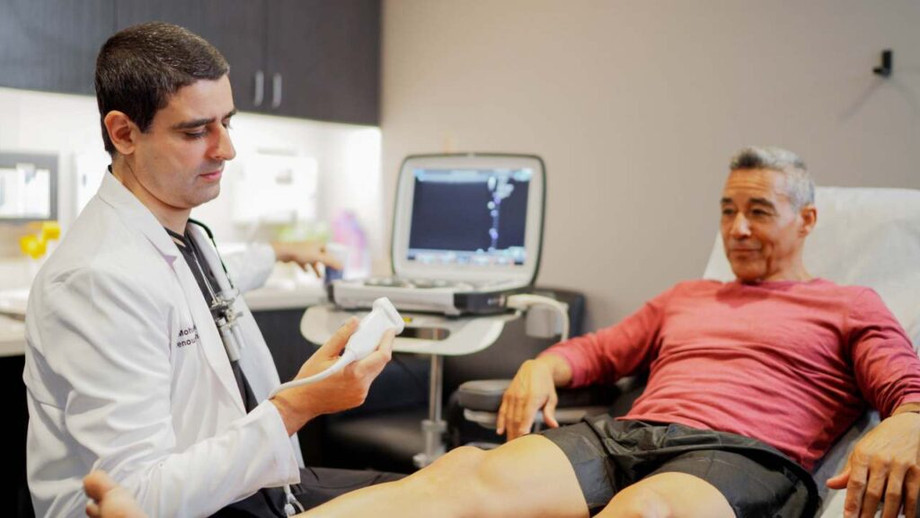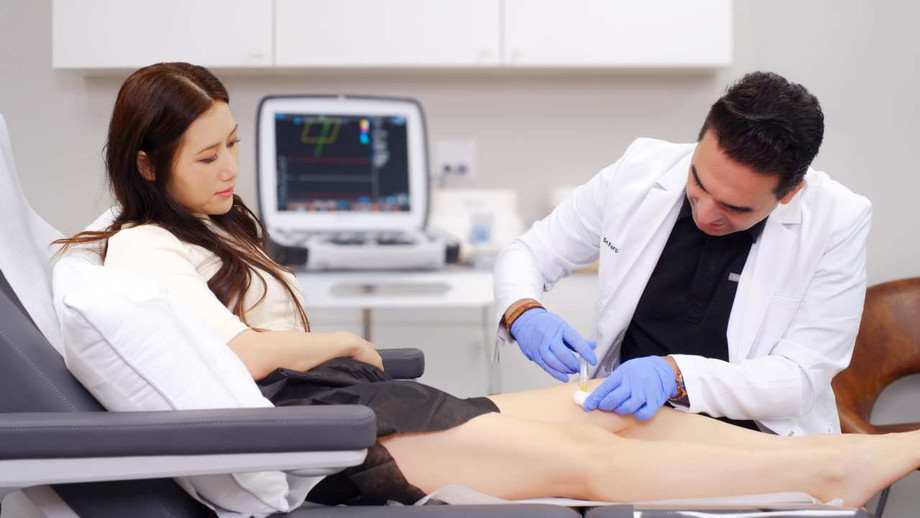The Advantage of Seeing a Vein Treatment Specialist: What Kind of Doctor Treats Veins?
If you're dealing with painful or unsightly veins, you might wonder: what kind of doctor treats veins? The answer is a vein treatment specialist, a medical professional with the training and expertise to diagnose and treat vein conditions effectively. Seeking the right kind of doctor can dramatically improve both your health and confidence. In this article, we’ll explore the types of vein specialists, what they do, and why seeing one can make a significant difference in your life.
What Is a Vein Treatment Specialist?
A vein treatment specialist is a doctor who focuses on diagnosing and treating conditions related to veins, particularly in the legs. These specialists typically treat issues like:
· Varicose veins
· Spider veins
· Chronic venous insufficiency
· Deep vein thrombosis (DVT)
· Leg swelling and pain
Most vein treatment specialists are board-certified in vascular surgery, interventional radiology, or phlebology (the study of veins). Their advanced training allows them to provide both cosmetic and medical treatments using the latest techniques and technologies.
What Kind of Doctor Treats Veins?
Several types of doctors may treat vein conditions, but not all have the same level of specialization. Here are the most common:
1. Vascular Surgeons
Vascular surgeons specialize in treating diseases of the blood vessels, including arteries and veins. They are highly trained in performing surgical and minimally invasive procedures to treat venous diseases.
2. Phlebologists
Phlebologists focus exclusively on vein health. Though they may come from various medical backgrounds, they receive additional training in vein-specific conditions and treatments.
3. Interventional Radiologists
These doctors use imaging technology to guide minimally invasive treatments. They often perform procedures like endovenous laser therapy (EVLT) or sclerotherapy for varicose veins.
4. Dermatologists (in some cases)
While not vein specialists, some dermatologists treat minor spider veins for cosmetic reasons. However, they may refer patients to a vein treatment specialist for more serious vein disorders.
Why You Should See a Vein Treatment Specialist
Now that you know what kind of doctor treats veins, let’s explore why choosing a vein treatment specialist is so beneficial.
Accurate Diagnosis
Vein problems can sometimes be symptoms of underlying medical conditions. A vein treatment specialist uses advanced diagnostic tools like ultrasound to accurately assess your vein health and determine the best course of action.
Customized Treatment Plans
No two patients are alike. A qualified specialist will evaluate your symptoms, lifestyle, and medical history to create a personalized treatment plan. This approach ensures more effective and lasting results.
Minimally Invasive Techniques
Modern vein specialists use advanced, minimally invasive procedures that require little to no downtime. Treatments such as sclerotherapy, radiofrequency ablation, and laser therapy are safe, effective, and typically performed in-office.
Relief from Symptoms
Vein issues are not just cosmetic. They can cause discomfort, swelling, fatigue, and even lead to more serious conditions like blood clots. A vein treatment specialist helps reduce or eliminate these symptoms, improving your quality of life.
Improved Appearance and Confidence
Varicose and spider veins can make people feel self-conscious. Treating them not only improves vein function but also enhances your appearance, allowing you to feel more confident in your skin.
When Should You See a Vein Treatment Specialist?
You should consider seeing a vein treatment specialist if you experience:
· Bulging or twisted veins
· Leg heaviness or fatigue
· Swelling in the legs or ankles
· Pain or cramping in the legs, especially after standing
· Itching or discoloration around the veins
· Restless legs at night
Ignoring these signs could lead to worsening symptoms or more serious complications.
What to Expect at Your First Appointment
During your initial visit, the specialist will ask about your symptoms, medical history, and lifestyle habits. They will likely perform a physical exam and may order a duplex ultrasound to evaluate blood flow in your veins.
Based on the findings, they’ll recommend a treatment plan. Most procedures are outpatient and involve little to no recovery time.
Final Thoughts: Choose the Right Doctor for Your Vein Health
Knowing what kind of doctor treats veins is the first step toward better vein health. A vein treatment specialist has the training, tools, and techniques to help you look and feel your best. Whether you’re dealing with discomfort, swelling, or cosmetic concerns, the right specialist can offer effective solutions that fit your needs and lifestyle.
Don’t ignore the signs. Vein conditions may worsen over time if left untreated. Make your health a priority and consult a vein treatment specialist today for expert care and long-term relief.


Comments
Post a Comment